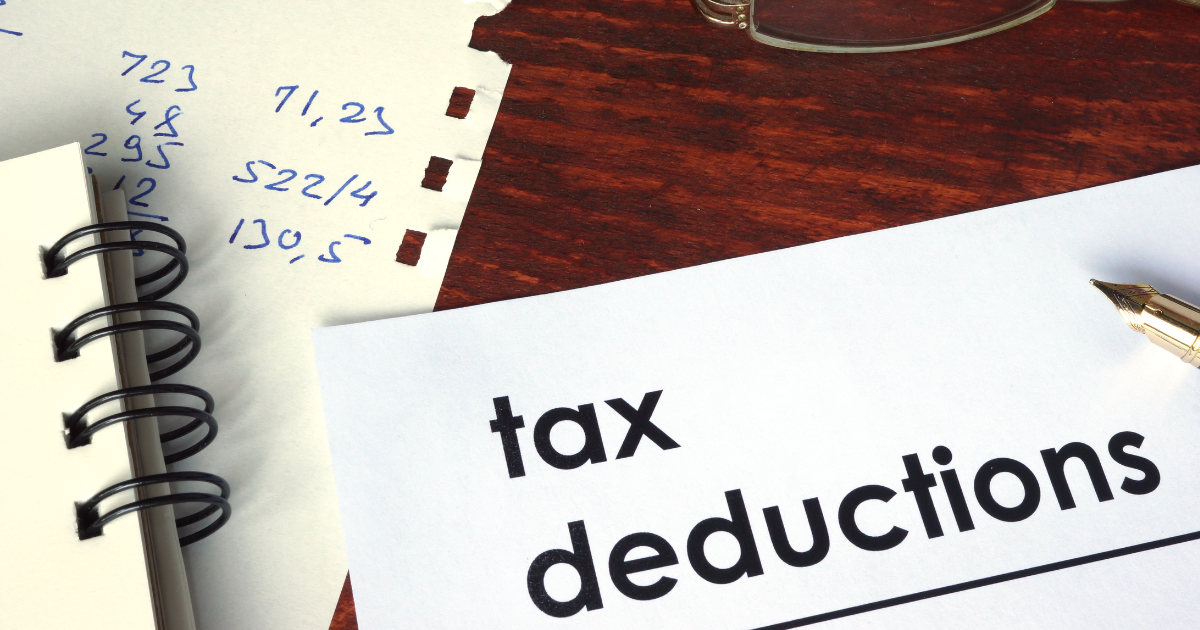Tax Season – Exploring Home Care Tax Deductions
Tax season can be a stressful time for many individuals and families, especially when navigating complex deductions and credits. One area that often raises questions is home care expenses. As the population ages and more people require in-home assistance, understanding the tax implications of home care becomes increasingly important. In this blog post, we’ll discuss strategies for getting ahead of your taxes this year and dive into the topic of whether home care is tax deductible.
Start Early and Get Organized
The key to a smooth tax filing process is to start early and get organized. Waiting until the last minute can lead to oversights, missed deductions, and unnecessary stress. Here are some tips to help you get ahead:
- Gather Important Documents: Collect all relevant tax documents, such as W-2s, 1099s, and receipts for deductible expenses, including home care services.
- Create a Tax Checklist: Make a list of all potential deductions and credits you may qualify for, including those related to home care.
- Consider Professional Help: If your tax situation is complex or you’re unsure about certain deductions, consider hiring a tax professional or accountant to assist you.
Understanding Home Care Tax Deductions
Home care can encompass a range of services, from medical care provided by healthcare professionals to personal care and homemaker services. The tax deductibility of these expenses largely depends on their nature and purpose. Here’s what you need to know:
Medical Expense Deduction
The primary way to potentially deduct home care expenses is through the medical expense deduction. To qualify, your total medical expenses must exceed a certain percentage of your adjusted gross income (AGI). As of the last update in 2022, the threshold was 7.5% for most taxpayers.
Qualified medical expenses may include:
- Payments to doctors, nurses, and therapists
- Prescription medications
- Medical equipment and supplies
- Home modifications for medical purposes (e.g., wheelchair ramps, stairlifts)
If home care services are medically necessary and prescribed by a healthcare professional, they may qualify as deductible medical expenses. However, personal care and homemaker services that are not medically necessary typically do not qualify for the medical expense deduction.
Dependent Care Credit
If you’re paying for home care services for a dependent (e.g., elderly parent or disabled child) to enable you to work, you may be eligible for the Dependent Care Credit. This credit can help offset the cost of care and is subject to certain income limitations.
Flexible Spending Account (FSA) or Health Savings Account (HSA)
If you have an FSA or HSA, you can use pre-tax dollars to pay for eligible medical expenses, including home care services. This can provide a significant tax advantage by reducing your taxable income.
Keep Accurate Records
To substantiate your home care expenses and potential deductions, it’s crucial to maintain accurate records and documentation. Keep all receipts, invoices, and prescriptions related to the care received. A detailed record of dates, services provided, and payments made will help support your tax deductions and credits in case of an IRS audit.
Consult a Tax Professional
Tax laws and regulations are complex and can change from year to year. Therefore, it’s highly recommended to consult with a qualified tax professional or accountant who specializes in healthcare-related deductions. They can provide personalized advice based on your individual circumstances and help ensure that you maximize your tax benefits while complying with all applicable laws.
See here for more information on if home care is tax deductible from aPlaceforMom:
Is Home Care Tax Deductible? What You Need to Know
Conclusion
Getting ahead of your taxes this year involves early preparation, organization, and a clear understanding of potential deductions and credits, including those related to home care. By starting early, keeping accurate records, and seeking professional guidance when needed, you can navigate the tax landscape more confidently and maximize your tax savings.
Disclaimer: This blog post is intended for informational purposes only and should not be considered as tax advice. Always consult with a qualified tax professional or accountant for personalized guidance tailored to your specific situation.
Sources:






